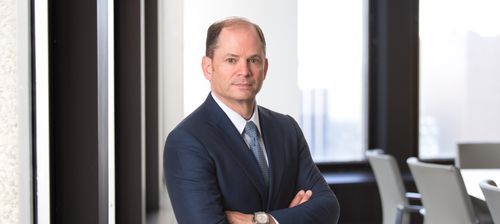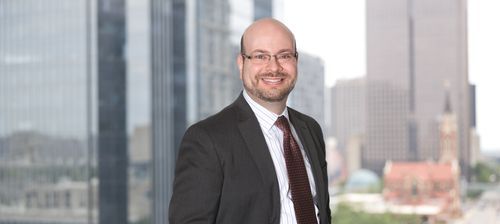Client Alert
SEC’s Action Against Elon Musk Highlights the Importance of Care in Tweeting Corporate Information
Client Alert
SEC’s Action Against Elon Musk Highlights the Importance of Care in Tweeting Corporate Information
October 8, 2018
Public company executives have increasingly turned to posting on Twitter and other social media outlets to connect with their companies’ customers and investors on a wide variety of topics. The informal nature of social media can result in these postings being treated with less seriousness than formal company news releases or filings with the Securities and Exchange Commission (SEC). The SEC’s recent actions against Elon Musk, the chairman and CEO of Tesla, Inc., and Tesla itself should be a wake-up call to public company executives and boards that regularly use social media. If there ever was any doubt, the SEC has made it clear that social media posting by company executives should be treated with the same seriousness as any other corporate disclosures, and should be subject to the same disclosure policies and procedures as more formal forms of corporate communication.
On September 27, 2018, the SEC charged Elon Musk with violating federal anti-fraud rules for making a series of tweets on August 7, 2018, regarding taking Tesla private.1 The SEC alleged that the tweets were false and misleading, and noted that from the time of Musk’s first tweet until the close of that day’s trading, Tesla’s stock price increased by more than 6% and closed up 10.98% from the previous day. The relief sought by the SEC included seeking to bar Musk from serving as an officer or director of a public company. Tesla’s stock price dropped 14% as a result of the SEC’s announcement of its lawsuit.
Two days later, on September 29, the SEC announced that it had also charged Tesla with violating an SEC rule that requires Tesla to maintain disclosure controls and procedures that meet specified standards, and at the same time announced the settlement of both lawsuits.2
The settlements require comprehensive governance reforms at Tesla and the payment of $20 million fines by both Musk and Tesla. In particular, the governance reforms include: (1) the replacement of Musk as chairman of the board of directors of Tesla; (2) the addition of two independent directors to the Tesla board; and (3) the creation of a new committee of independent directors along with additional controls and procedures to monitor Musk’s future communications. The SEC press release did not detail the precise nature of these additional controls and procedures.
The SEC’s complaint against Musk focused on his now famous tweet on August 7, 2018: “Am considering taking Tesla private at $420. Funding secured.” Over the next three hours he published a series of additional tweets, including that “Investor support is confirmed. Only reason why this is not certain is that it’s contingent on a shareholder vote.” The SEC alleged that these tweets were false and misleading and violated Rule 10b-5 under the Securities Exchange Act of 1934 because Musk had no basis for these assertions. For example, the SEC charged that “When he made these statements, Musk knew that he had never discussed a going-private transaction at $420 per share with any potential funding source.”3 According to the complaint, Musk’s apparent primary basis for his tweets was a single 30-45 minute meeting on July 31 with a sovereign investment fund, which Tesla’s CFO joined midway through the meeting. According to the SEC, “[t]he July 31 meeting lacked discussion of even the most fundamental terms of a proposed going-private transaction.”4 Finally, the SEC alleged that before broadcasting his tweets to his over 22 million Twitter followers5 on August 7, “Musk did not consult with Tesla’s Board of Directors, any other Tesla employees, or any outside advisers about these tweets before publishing them.”6
TAKEAWAYS
- In case there ever was any doubt, it should now be clear to public company directors and officers that imprudent tweets and other social media posting relating to material corporate information can be just as dangerous as an improper disclosure in SEC filings or formal corporate press releases. The SEC has long held that the anti-fraud provisions apply just as forcefully to tweets and social media postings as they do to conventional press releases and SEC filings.7 All disclosures by company executives relating to material corporate actions or information, regardless of form or forum, should be the subject of rigorous due diligence and careful drafting because, as the SEC’s action makes clear, they are subject to the same liability rules. Well-advised public companies have “disclosure controls and procedures” designed to weed out improper disclosures in SEC reports and press releases. There is no reason not to subject CEO and other senior-management tweets, Facebook posts, and any other communications via other public media to the same disclosure controls and procedures when those communications are being used to communicate material corporate information. The SEC noted Tesla’s responsibility for Musk’s Twitter account by referring to a Form 8-K Tesla filed on November 5, 2013, stating that the company intended to use Musk’s Twitter account to disclose material information about the company and its products and services.
In its press release announcing the settlement, the SEC emphasized the importance of subjecting tweets and social media postings to adequate controls and procedures, especially when a company has told the investment community that it will use social media outlets to announce corporate information, stating that:
[D]espite notifying the market in 2013 that it intended to use Musk’s Twitter account as a means to announcing material information about Tesla and encouraging investors to review Musk’s tweets, Tesla had no disclosure controls or procedures in place to determine whether Musk’s tweets contained information required to be disclosed in Tesla’s SEC filings. Nor did it have sufficient processes in place to [determine] that Musk’s tweets were accurate or complete.
- Following sound disclosure principles will also enable other members of the management team to intelligently field calls from the investment media about tweets from the CEO without making mistakes or appearing flat-footed. The SEC alleged that Tesla’s head of investor relations, in response to a call from a media representative, at first doubled down on Musk’s tweet by telling a research analyst: “…we can’t add anything else. I … wanted to stress that Elon’s first tweet, which mentioned ‘financing secured,’ is correct.”8 Later, he backpedaled, saying “I actually don’t know [the nature of the financing commitment], but I would assume that given that we went full-on public with this, the offer is as firm as it gets.”9
- In a statement accompanying the SEC’s announcement of the settlement, the SEC’s chairman, Jay Clayton, emphasized that “when companies and corporate insiders make statements, they must act responsibly, including endeavoring to ensure the statements are not false or misleading and do not omit information a reasonable investor would consider important in making an investment decision.” The SEC’s action makes clear that it will not go easy on careless disclosures by corporate officers simply because the company’s shareholders may ultimately suffer. Indeed, although not mentioned by Clayton, this is a reason “key person” risk factors have been common for years in IPO prospectuses for companies led by high-profile CEOs, but too often dismissed as merely a backhanded compliment to the CEOs themselves. Yet, in a clear reference to the fact that the SEC’s settlements allowed Musk to continue as CEO, Clayton also noted that the SEC’s enforcement efforts can have the effect of harming ordinary investors as “the skills and support of certain individuals may be important to the future success of a company.” So while holding high-profile individuals like Musk personally responsible is an effective regulatory means of deterrence, Clayton supported the settlements as reflecting a balancing of “these multiple interests and considerations.”
- Shareholders may now ask, “Where were the directors in all of this?” when assessing the fallout that has occurred and likely will continue. The SEC’s settlement of the Musk and Tesla cases confirms not only that companies must ensure that their disclosure policies and procedures adequately regulate social media postings, but also that independent directors have a special and heightened responsibility to manage and try to correct CEO behavior once CEOs exhibit a proclivity for off-the-cuff communications. In such a situation, independent directors should insist on the ability to hire their own counsel and make sure the counsel they select has no connection to the company or CEO. It may mean that directors need to have a frank conversation with the offending executive about the need to comply with the company’s disclosure policies and procedures, and the underlying securities laws and rules, which the executive may not find intuitive. Above all, the directors must have the fortitude to call the CEO on the carpet if there are violations, and insist on conduct that observes the company’s disclosure policies and procedures and protects the best interests of shareholders.
1 U.S. Securities and Exchange Commission v. Elon Musk. C. A. 1:18-cv-8865 (S.D.N.Y., filed September 27, 2018) (“Complaint”).
2 SEC Press Release, “Elon Musk Settles SEC Fraud Charges; Tesla Charged With and Resolves Securities Law Charge” (September 29, 2018).
3 Complaint at ¶3.
4 Complaint at ¶¶18-21.
5 Complaint at ¶68.
6 Complaint at ¶32.
7 See Commission Guidance on the Use of Company Websites, Release No. 34-58288 (effective August 7, 2008).
8 Complaint at ¶51.
9 Complaint at ¶52.










